Introduction
Energy is important
- US spends more than $1.3 trillion on energy each year
- Approx $4,000 per capita, 6% GDP
- Moreover, this energy supports most other consumption.
- Integral for economic development too
- Therefore, sense in which it is going only going to become more important over time
One goal of this course is to simply provide an economic introduction to these important markets
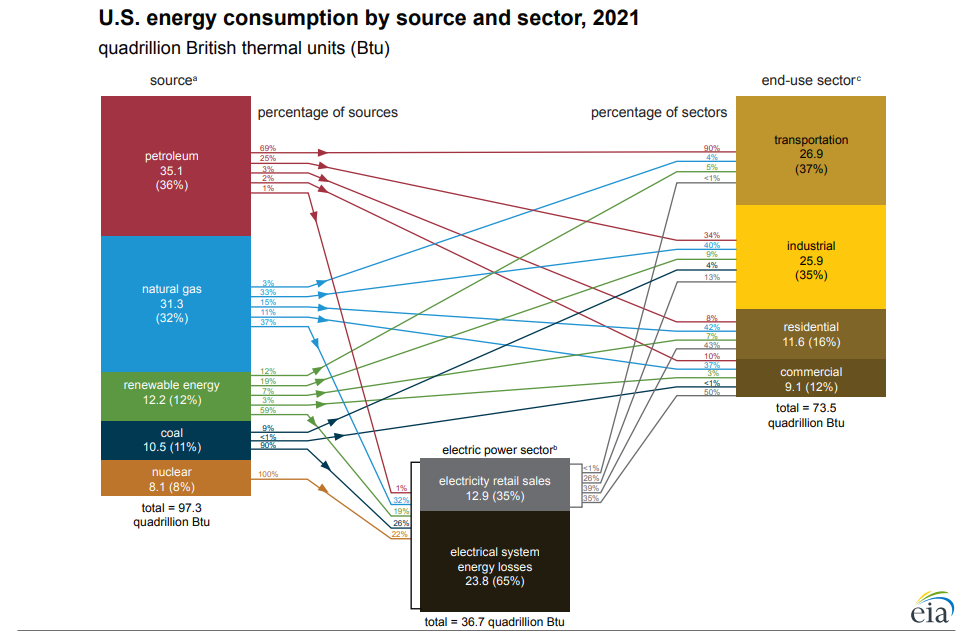
Home energy use
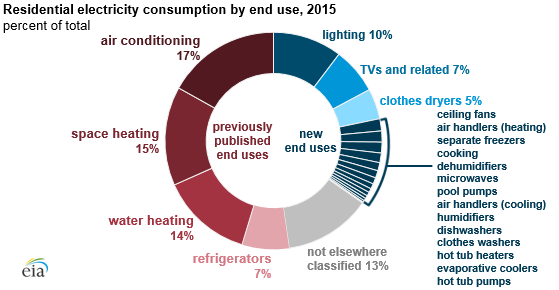
Keeping prices down is important
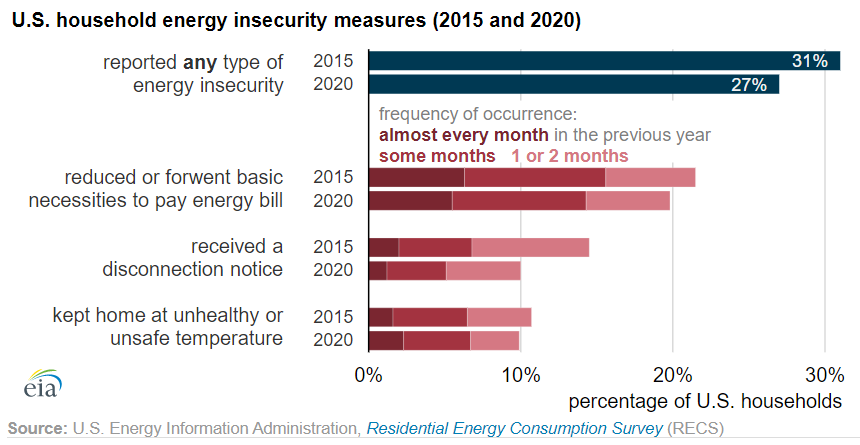
Recent energy price surges worst in decades

Much of this class will focus on regulation and public policy aimed at improving energy markets.
Two reasons why we think unregulated energy markets will not be economically efficient:
-
Market power
-
Externalities from energy production/ consumption
These are textbook market failures: ALL economists agree regulation can increase welfare.
Historically some markets thought to be natural monopolies
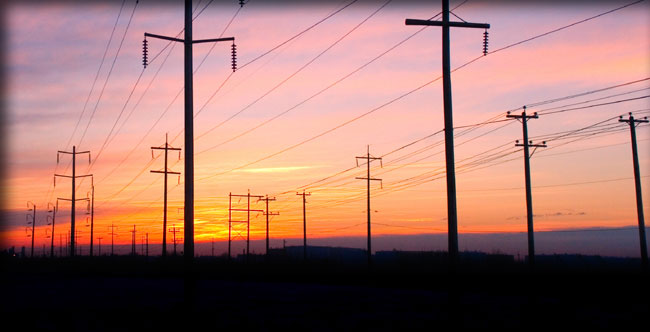
Problem: Monopoly price is too high
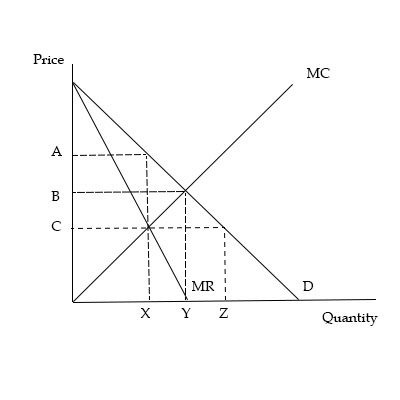
Last four decades characterized by deregulation
-
Historically prices were set by the government
-
By 1970's, regulatory inefficiency was increasingly apparent
- Nuclear power plants coming in way over cost
- Gasoline and natural gas shortages common
-
Response has been to gradually deregulate these markets
- Electric power deregulation
- PURPA (1970s)
- Wholesale markets (1990's)
- Natural gas wellhead prices deregulated (1978 - 1985)
- Oil price controls removed (1981)
- Electric power deregulation
Deregulated markets have not always performed well
Many energy markets remain imperfectly competitive
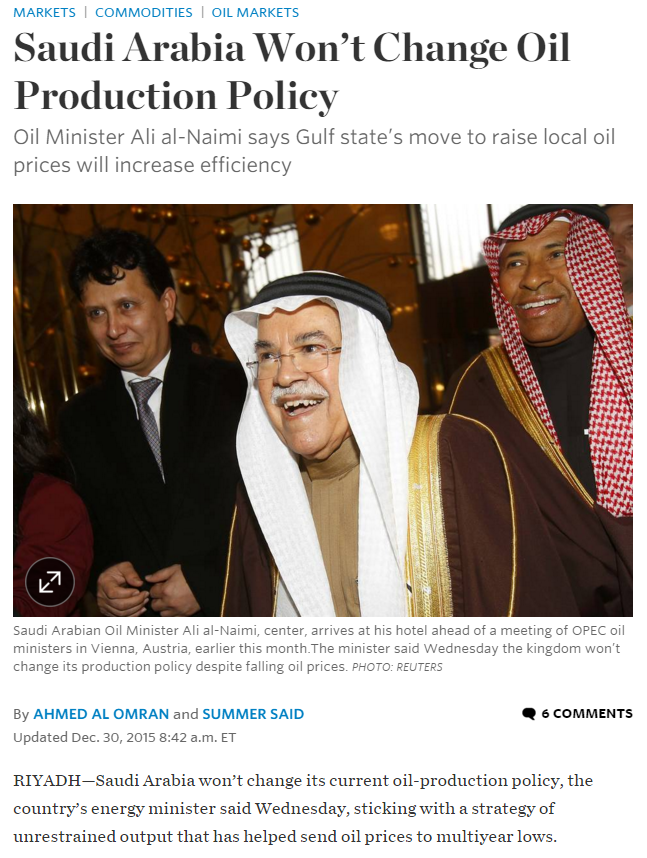
How much regulation is optimal?
-
What are the costs of imperfect competition in energy markets?
- Want to know what will happen to prices, jobs, innovation, etc.
-
Which segments of energy markets shouldn't be deregulated?
- Can we quantify the gains/ losses from deregulation?
Energy production and consumption also associated with many social costs
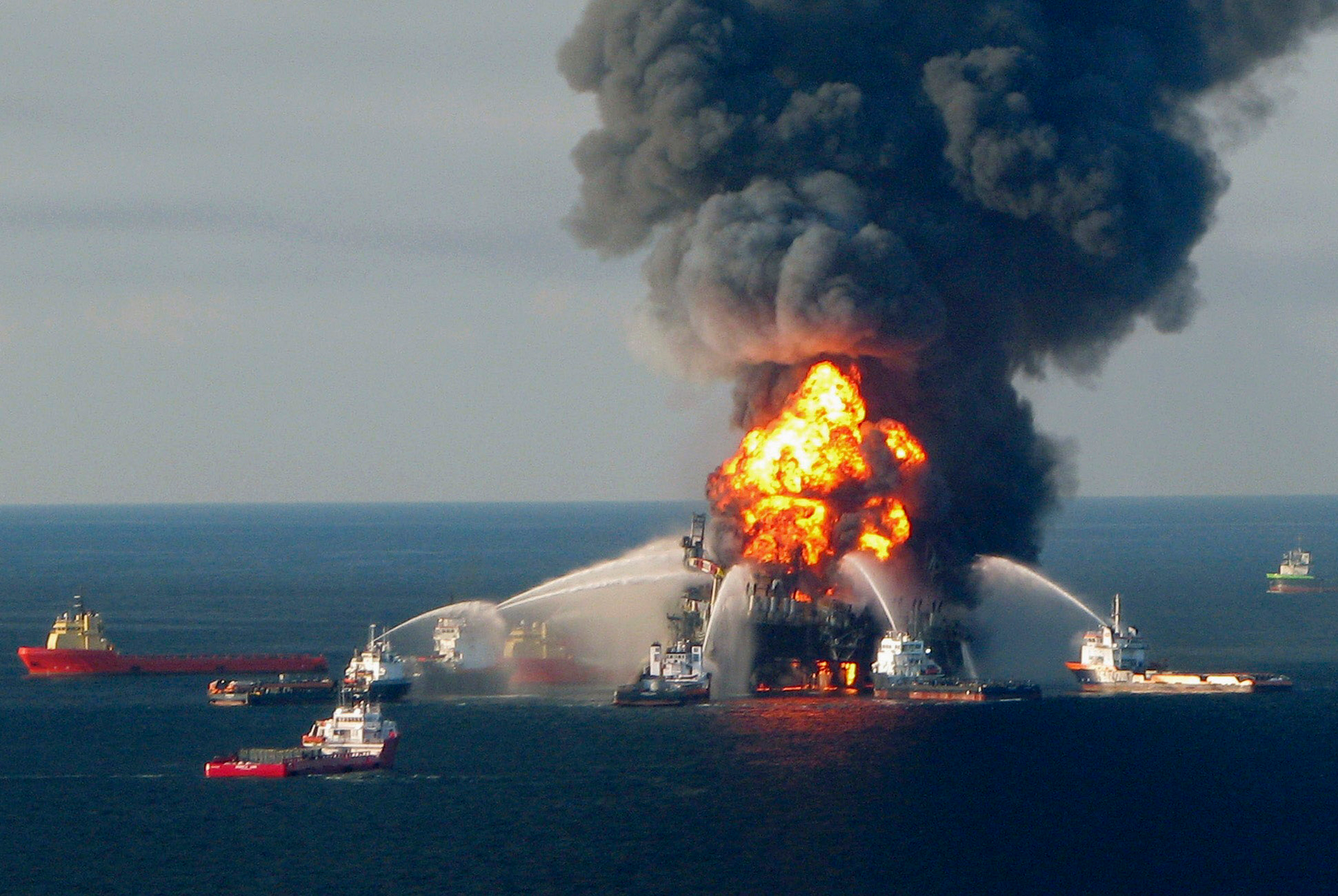
BP Oil Spill, Gulf of Mexico, 2010
Many of these costs are externalities
An externality exists when the consumption or production choices of one person or firm enter the utility or production function of another entity without that entity's permission or compensation.
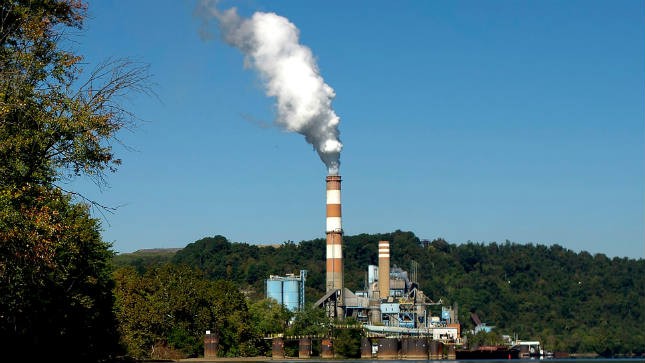
Problem: Market price is too low
Negative externalities will be oversupplied by the market.
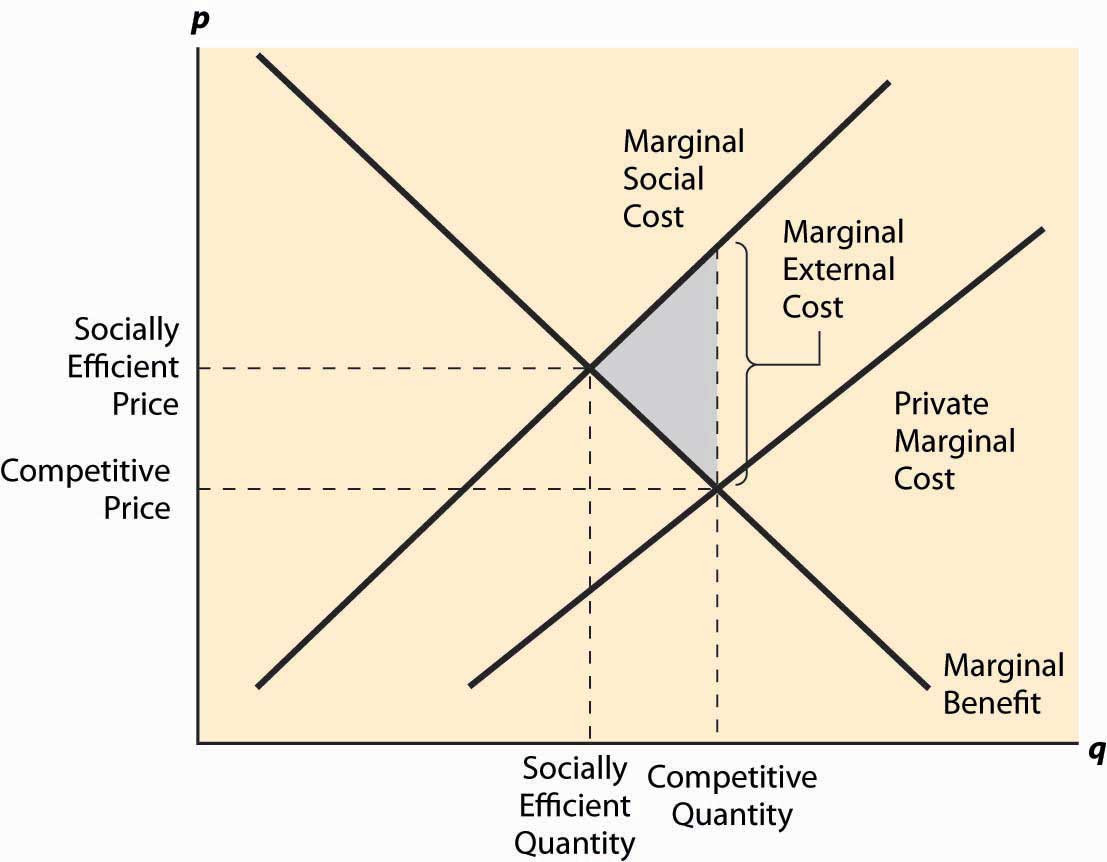
Local air pollution is currently the most costly externality
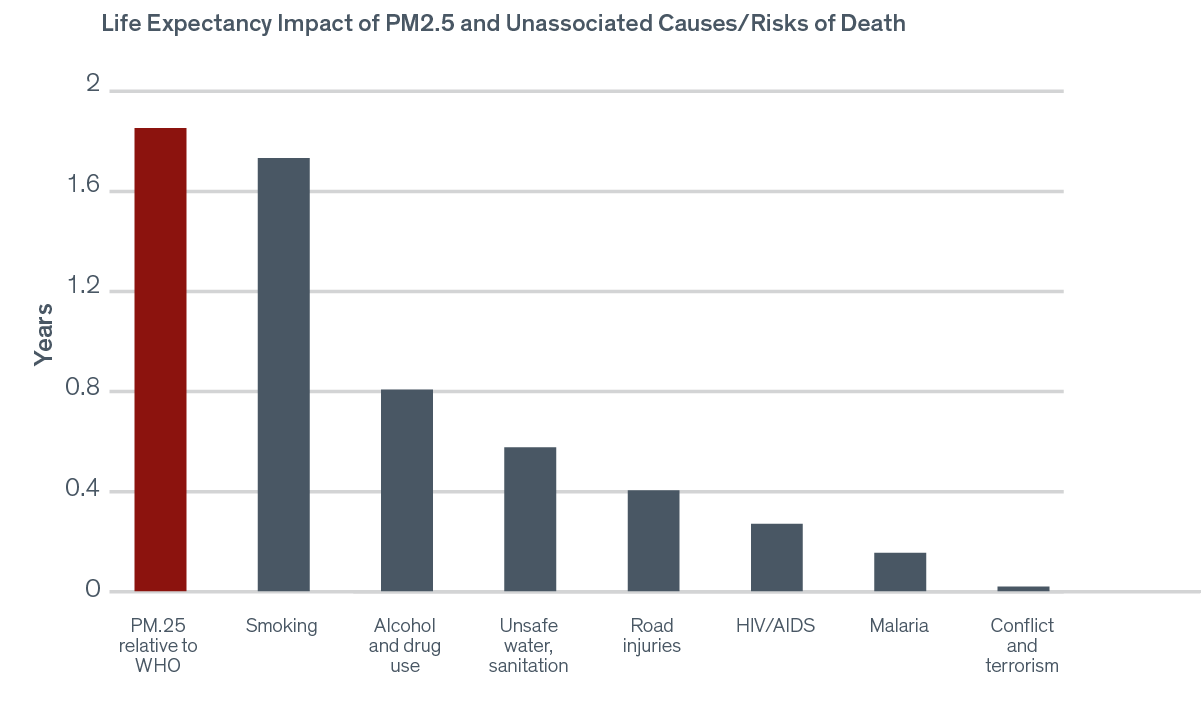
Going forward the biggest challenge is climate change
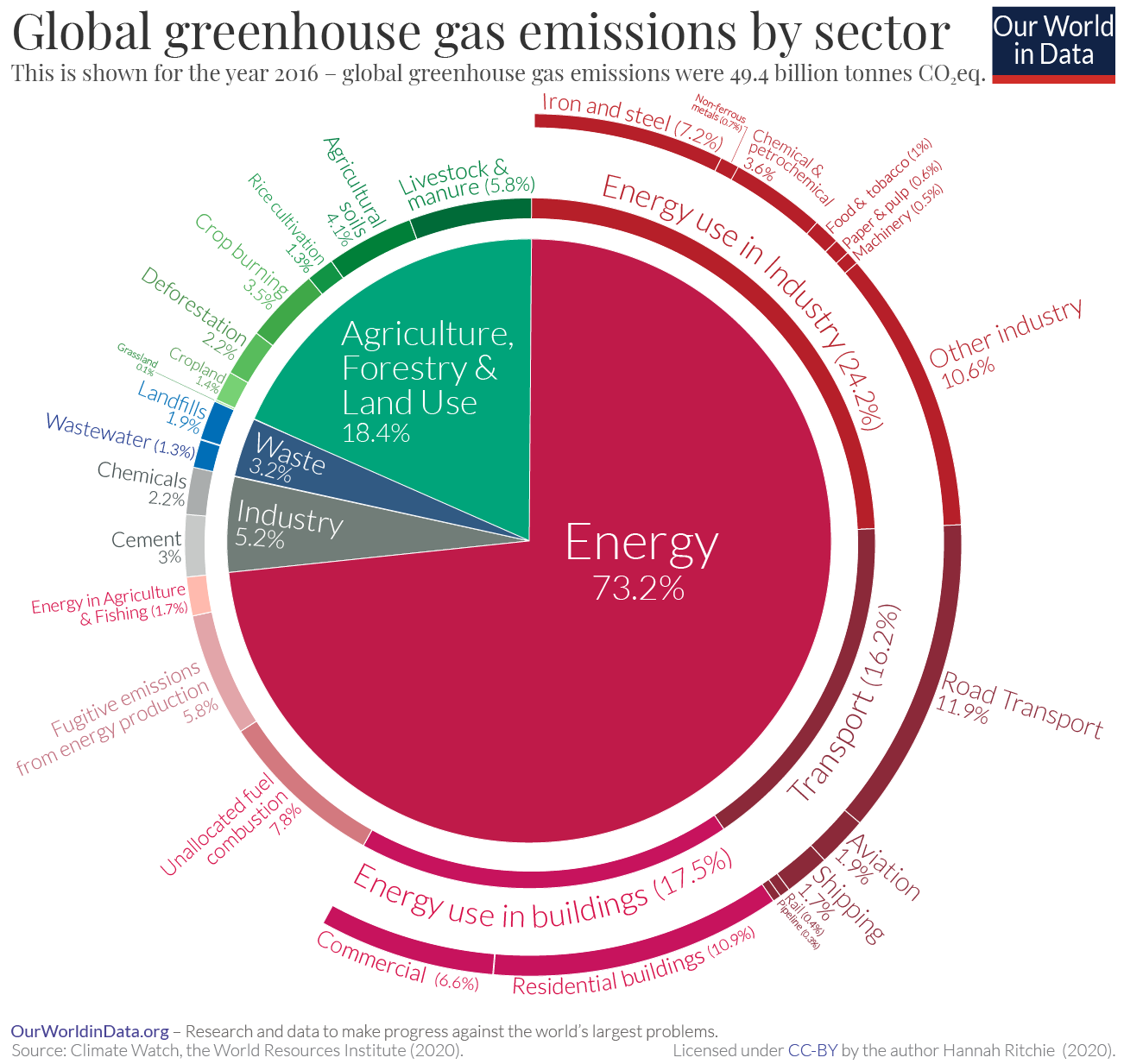
To produce energy, humans took a lot of previously sequestered carbon and put it in the atmosphere.
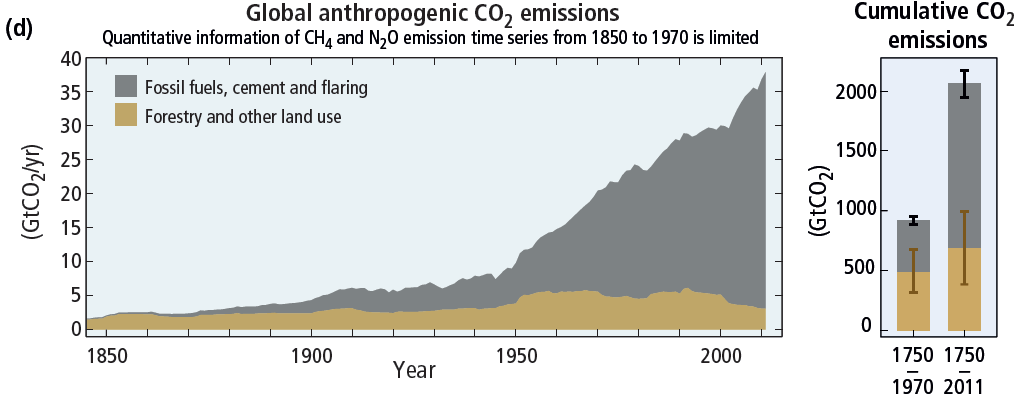
Caused a dramatic increase in the GHG stock
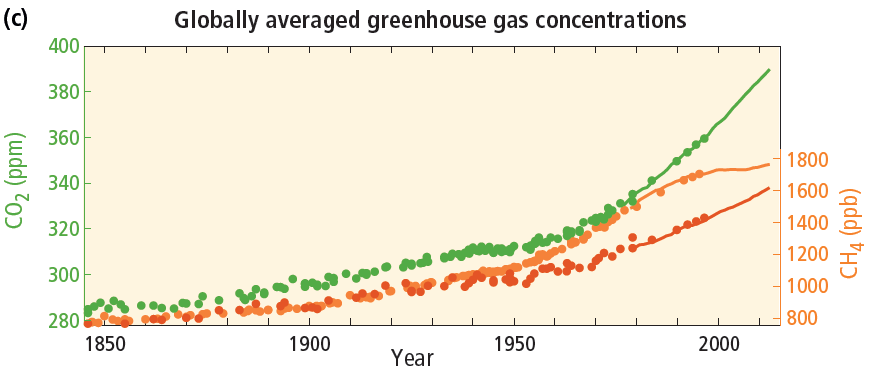
Well understood physical relationship with temperature
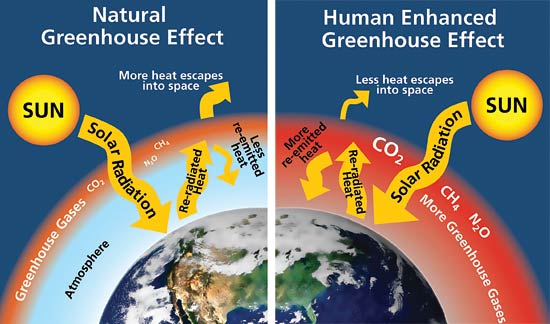
Clearly observed in real data
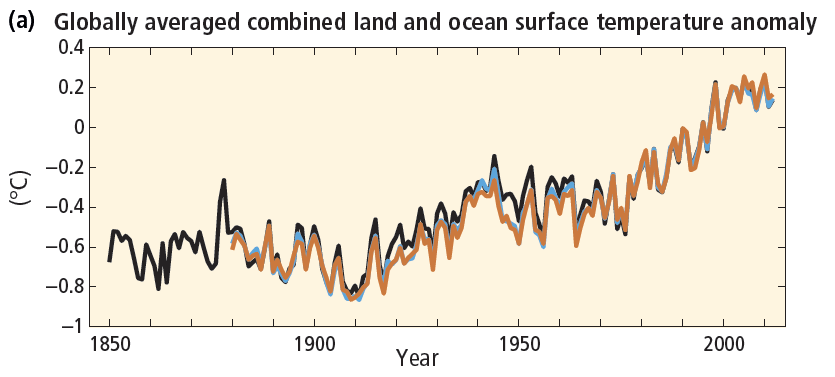
Need abrupt action to avoid worst outcomes
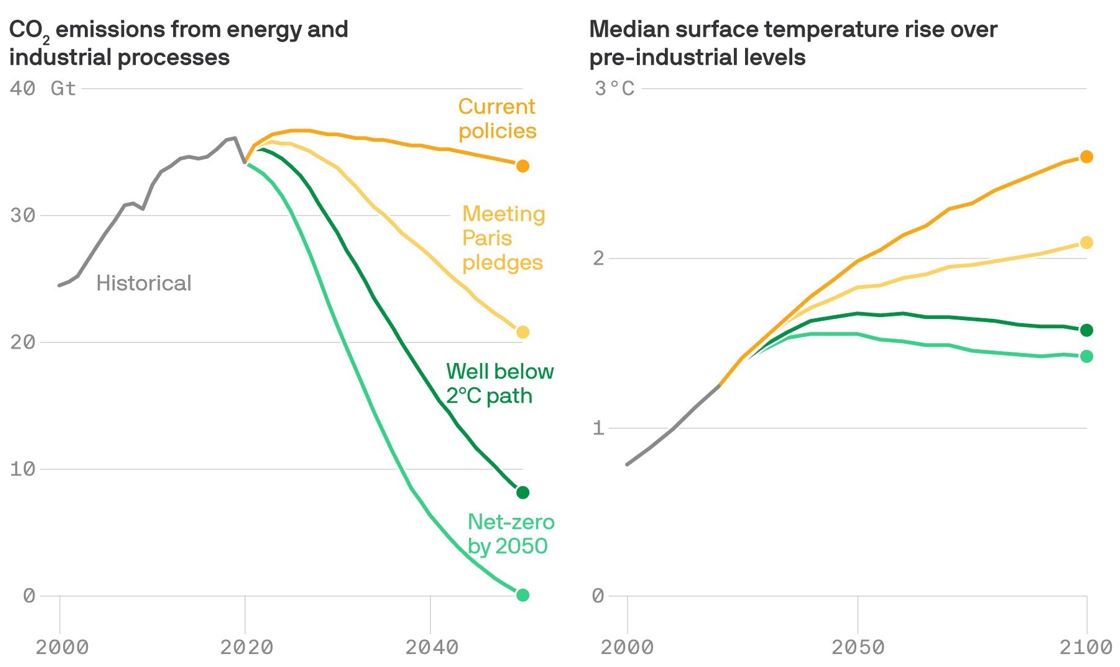
Good News: Basic outline of a solution is well known
-
75% of global CO2 emissions come from energy
- Other big sources are deforestation and industrial production (like cement and steel)
-
We need to switch essentially all energy use to electric power
- heating
- transportation (!)
-
Then decarbonize electricity production as fast as possible
- shut down coal plants [carbon capture and storage]
- switch to wind and (mainly) solar
-
Increase energy efficiency of durables (ACs, water heaters, etc)
Renewables now at cost-parity in many locations
But still occupy a small share of the market
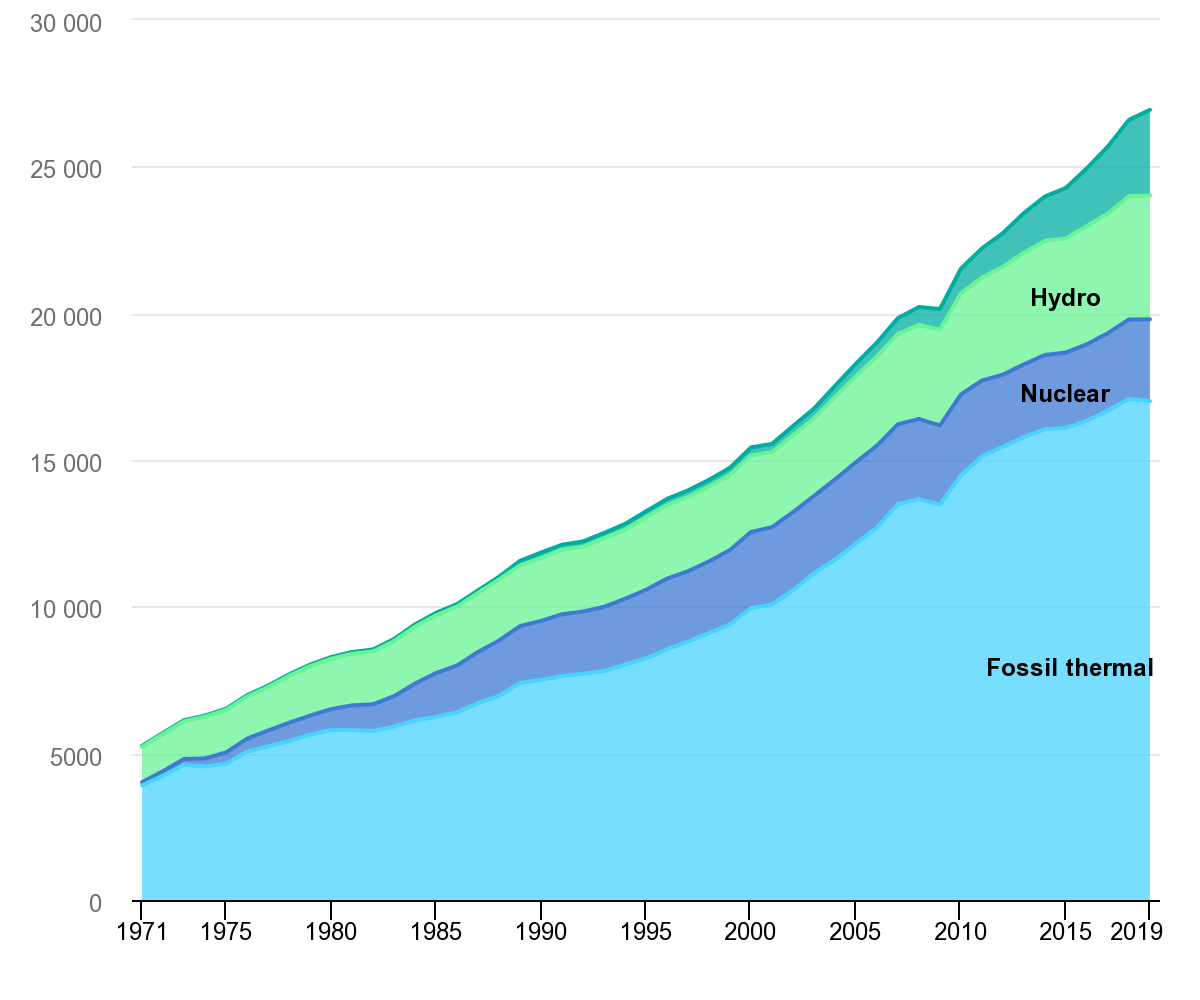
Tesla now the world's biggest car company
How should we alter energy systems to meet our environmental goals?
-
How much will it cost to make our energy system ``greener''?
- How much higher will energy prices be?
- What infrastructure investments do we need?
-
How should the we meet our CO2 targets?
- renewable energy? innovation? efficiency?
- Should we focus on the short or long run?
Trends
US currently undergoing an oil and gas boom
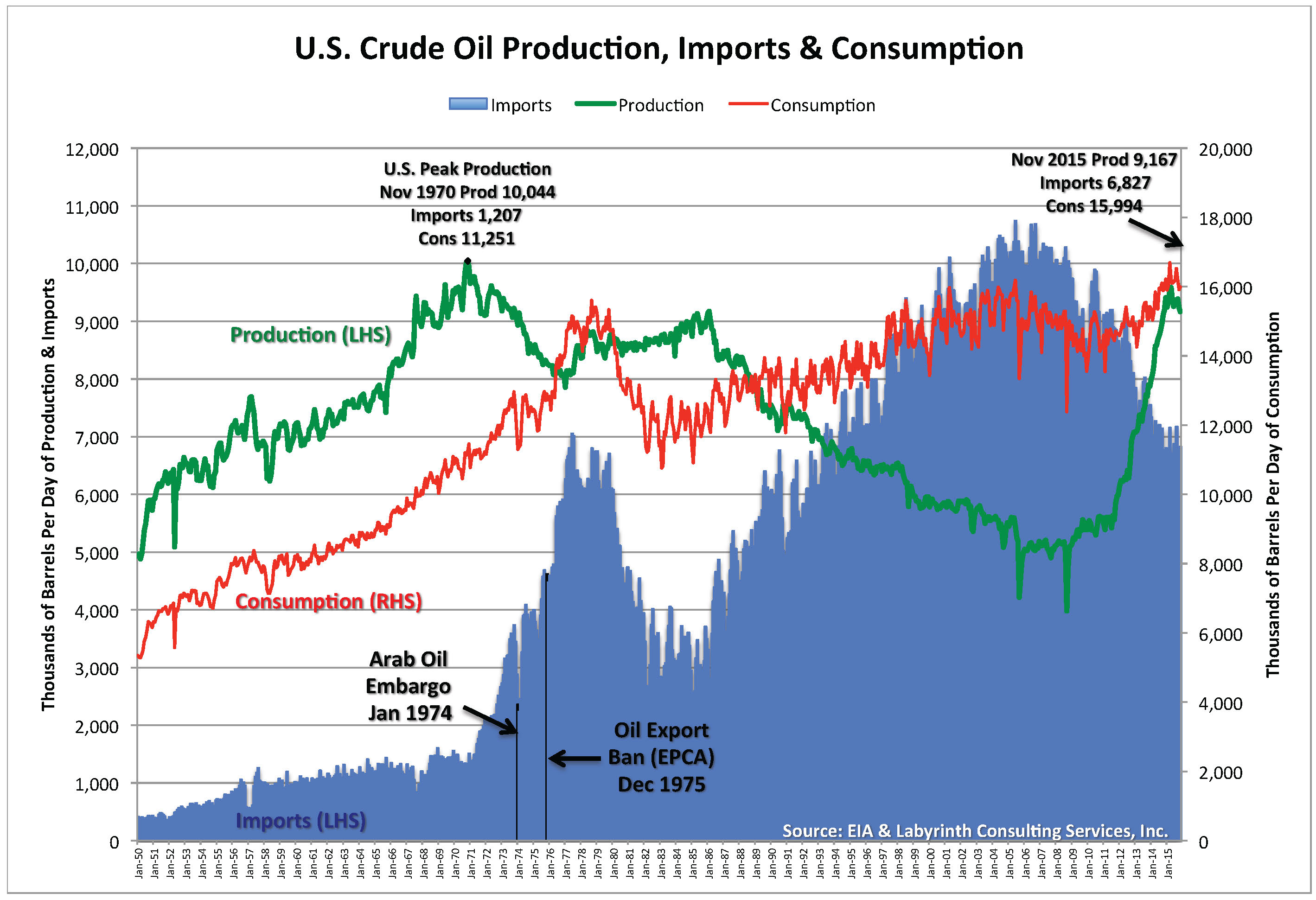
Source: Forbes
Gas production in the US had been flat for decades
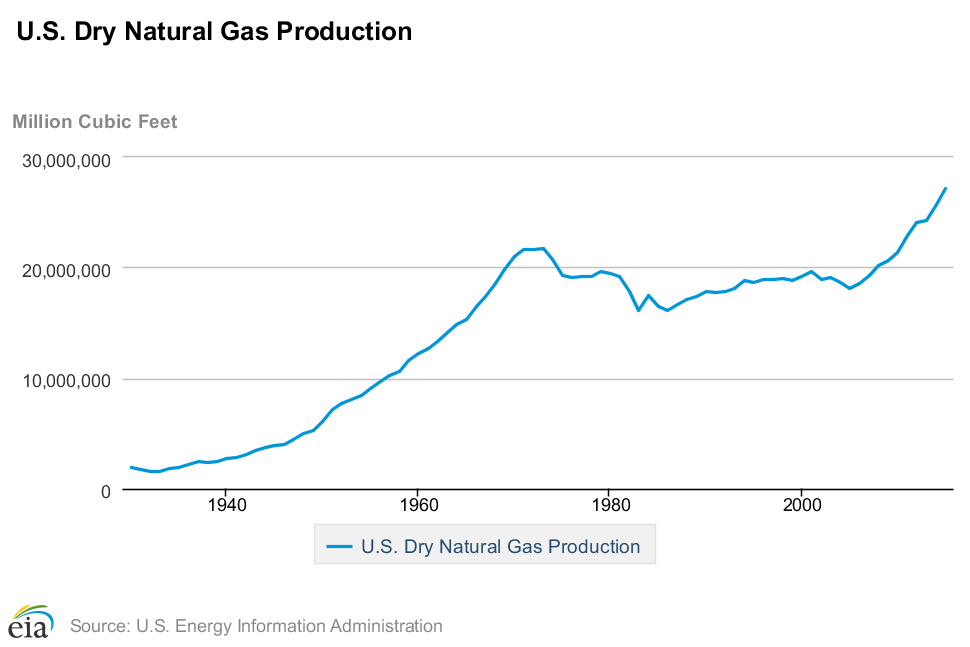
Due to fracking
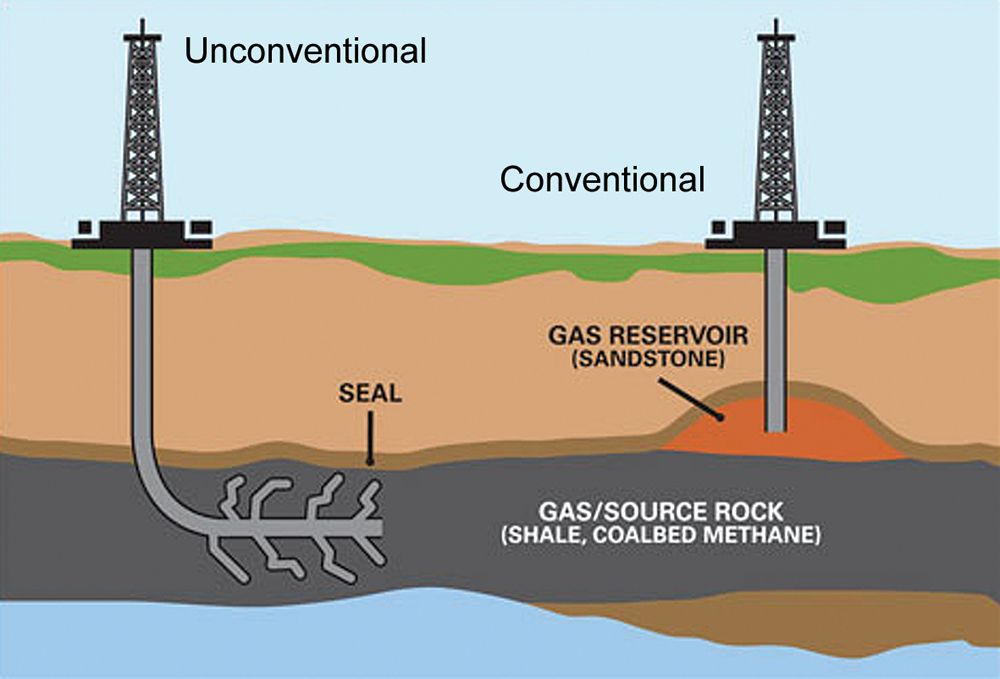
Hydraulic fracturing also involves many negative externalities
We'll take an economic approach to thinking about energy policy
- Need to understand context
- some unique features complicate standard prescriptions
- we'll review important institutional details
- Use economic theory
- understanding (and harnessing) incentives is essential for efficient regulation
- must think on the margin!
Theory and engineering are important, but many policy questions are empirical
- Use modern, rigorous empirical methods
- Emphasis on causality
- what can be said with the available data?
- Study recent, rigorous, policy-relevant empirical literature
- Emphasize methods employed (and how they relate to the policy question) as well as results
- Use what you've learned to identify and answer your own energy policy question
Course logistics
-
Slides will be hosted on my website:
www.richard-sweeney.com/energy-econ -
First required reading due Monday. Remember to submit a short response.